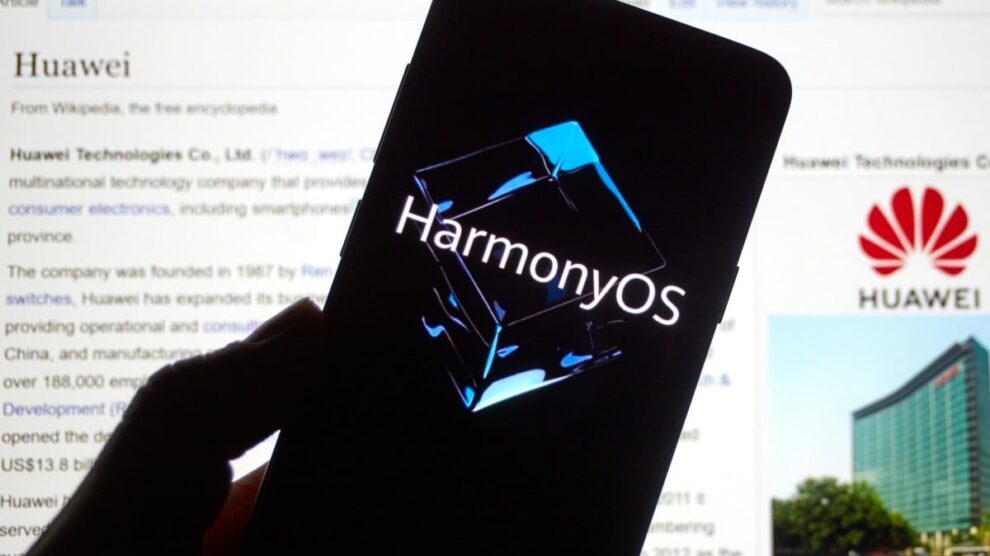The rise of Huawei’s HarmonyOS in China marks a significant shift in the global mobile operating system landscape. As reported by the South China Morning Post, HarmonyOS has surpassed iOS to become the second most popular mobile OS in China, trailing only Android. This development has far-reaching implications for the tech industry, geopolitics, and the future of mobile computing.

HarmonyOS’s Growth in China
Market Share and Adoption
The rapid growth of HarmonyOS is noteworthy:
- 17% market share in China as of Q1 2024
- Surpassed iOS (16% market share) in a relatively short time
- Indicates strong adoption among Chinese consumers and manufacturers
Factors Contributing to Success
Several elements have likely contributed to HarmonyOS’s growth:
- Strong government and industry support within China
- Huawei’s existing brand strength and customer base
- Potential advantages in localization and integration with Chinese services
- Possible patriotic sentiment among Chinese consumers
Strategic Implications for Huawei
Reducing Dependence on U.S. Technology
HarmonyOS represents a crucial strategy for Huawei:
- Mitigates risks associated with U.S. trade restrictions
- Provides a path to continue smartphone production without Google services
- Demonstrates Huawei’s technological capabilities and resilience
Building a Comprehensive Ecosystem
Success in operating systems could lead to broader ecosystem development:
- Potential for HarmonyOS to expand to other device categories (IoT, wearables, etc.)
- Opportunity to create a unique app ecosystem tailored to Chinese market needs
- Possible leverage in negotiations with international partners and developers
Impact on the Global Mobile OS Landscape
Challenging the Android-iOS Duopoly
HarmonyOS’s success in China raises questions about global market dynamics:
- First significant challenge to Android-iOS dominance in years
- Could inspire other companies or countries to develop alternative mobile OSes
- May influence how Google and Apple approach the Chinese market
Potential for International Expansion
While currently focused on China, HarmonyOS’s future could include:
- Gradual expansion into other Asian markets
- Adoption by other Chinese smartphone manufacturers for international models
- Possible attraction for countries seeking alternatives to U.S.-dominated tech
Challenges and Limitations
App Ecosystem Development
Building a competitive app ecosystem remains a significant hurdle:
- Need to attract international developers to create apps for HarmonyOS
- Potential difficulties in matching the breadth of apps available on Android and iOS
- Challenges in replicating popular global services that are restricted in China
International Acceptance
Expanding beyond China will face several obstacles:
- Ongoing security concerns and scrutiny of Chinese technology in some countries
- Strong user loyalty to Android and iOS in established markets
- Potential resistance from Google and Apple to protect their market share
Geopolitical Implications
Tech Independence and National Security
HarmonyOS’s development has broader geopolitical significance:
- Demonstrates China’s push for technological self-reliance
- Could influence other nations’ strategies regarding tech independence
- May impact international discussions on technology standards and governance
Impact on U.S.-China Tech Relations
The success of HarmonyOS could affect ongoing tech tensions:
- Potential for increased competition and further decoupling of tech ecosystems
- May influence future trade negotiations and technology export policies
- Could spark debates on global internet fragmentation and “splinternet” concerns
Future Outlook
Potential Scenarios for HarmonyOS
Several possible futures exist for Huawei’s operating system:
- Continued dominance in China with limited international adoption
- Gradual expansion into select international markets, particularly in Asia and Africa
- Emergence as a significant third player in the global mobile OS market
- Potential setbacks due to geopolitical pressures or ecosystem limitations
Implications for the Tech Industry
HarmonyOS’s growth could catalyze broader changes:
- Increased investment in alternative mobile OSes by other tech giants
- Greater focus on OS security and privacy features as differentiators
- Potential shift towards more regionally-focused tech ecosystems
Conclusion: A New Chapter in Mobile OS Competition
The rise of HarmonyOS in China represents a significant development in the mobile operating system landscape. Its success challenges the long-standing duopoly of Android and iOS, demonstrating that with the right conditions and support, new players can emerge in this crucial tech sector.
For Huawei, HarmonyOS is more than just an operating system; it’s a strategic asset that provides resilience against geopolitical challenges and a platform for future innovation. Its growth in China showcases the company’s technological capabilities and its ability to adapt to significant market pressures.
However, the path forward for HarmonyOS is not without obstacles. Building a competitive app ecosystem, gaining international acceptance, and navigating complex geopolitical waters will be crucial challenges for Huawei to address if it aims to expand HarmonyOS’s influence beyond China’s borders.
Regardless of its ultimate global impact, HarmonyOS’s success in China is already influencing the tech industry. It serves as a case study in technological self-reliance, challenges assumptions about the immutability of the mobile OS market, and may inspire new approaches to operating system development and ecosystem building.
As the mobile technology landscape continues to evolve, the story of HarmonyOS will be one to watch closely. Its trajectory could offer valuable insights into the future of mobile computing, the dynamics of global tech competition, and the complex interplay between technology, markets, and geopolitics in the 21st century.










Add Comment